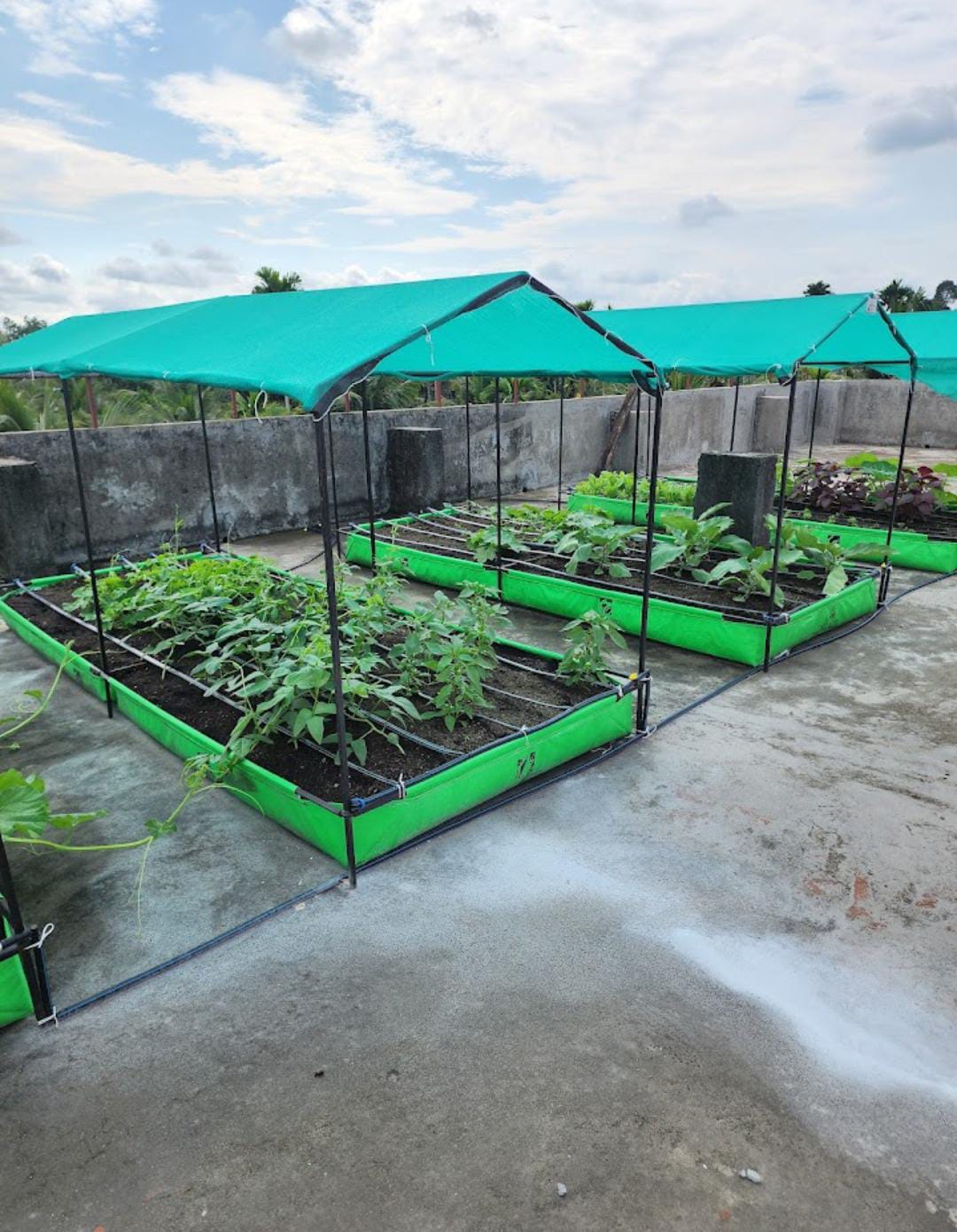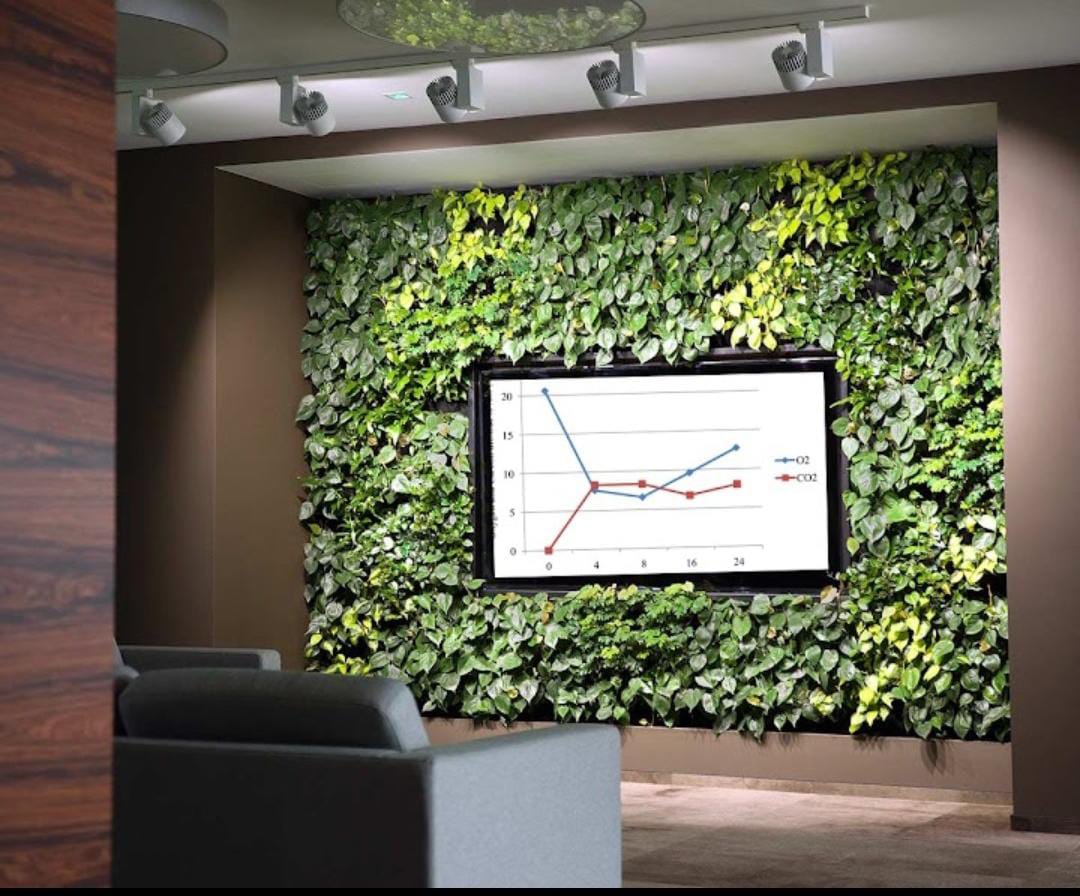Innevotek Agri Solutions
Elamakkara - Ernakulam
Products & Services:
Innevotek Agri Solutions, Elamakkara, Ernakulam, Reviews, Contact number, Phone number, Address, Map More..
Since : 2024
Elamakkara - Ernakulam
Products & Services:
Innevotek Agri Solutions, Elamakkara, Ernakulam, Reviews, Contact number, Phone number, Address, Map More..
Since : 2024
Agriculture is a crucial part of our food system, and the efficient management of farming practices is essential for achieving sustainable growth. Agri solutions refer to a comprehensive range of services and technologies designed to improve agricultural operations. These solutions cover everything from crop management, soil health monitoring, and irrigation, to pest control and farm automation. In Ernakulam, agricultural professionals and service providers are offering cutting-edge solutions to help farmers increase productivity and ensure sustainable farming practices.
Agri solutions encompass a variety of services and technologies that aim to optimize and improve agricultural activities. These include everything from the basics of soil testing and irrigation planning to advanced techniques like precision farming and digital agriculture. Agri solutions help farmers make informed decisions on planting, watering, fertilizing, and harvesting, enabling them to increase yields while minimizing the environmental impact of their practices.
·
Innevotek Agri Solutions
Keerthi Nagar, Near Vikas Road,
Elamakkara, Ernakulam, 682026
·
Hydro Green Farm Solutions
Thammanam Pullepady Road,
Ernakulam, Kerala 682032
·
AgriTech Hydroponics
Palarivattom,
Ernakulam, Kerala 682025
·
Urban Roots Hydroponics Farm
Vyttila,
Ernakulam, Kerala 682019
·
Eco Farms Hydroponics
SRM Road, Kaloor,
Ernakulam, Kerala 682017
·
Keralite Hydroponics Systems
Panampilly Nagar,
Ernakulam, Kerala 682036
·
GreenLeaf Soilless Farming
Edappally,
Ernakulam, Kerala 682024
·
NextGen Farming Solutions
M.G. Road,
Ernakulam, Kerala 682016
·
TechGreen Hydroponic Solutions
Kakkanad,
Ernakulam, Kerala 682030
·
Green Future Hydroponics
Kaloor-Kadavanthra Road,
Ernakulam, Kerala 682020
Agri solutions encompass a wide range of services and
technologies designed to help farmers and agricultural businesses enhance
productivity, efficiency, and sustainability. From traditional agricultural
practices to innovative technologies like soilless agriculture, agri solutions
aim to provide holistic support for growing healthy crops, optimizing
resources, and maintaining environmental balance. This guide will cover key
aspects of Agricultural Services
and Soilless Agriculture, along
with frequently asked questions and their answers to help you better understand
the field.
Agricultural
services refer to
the range of professional and technical support provided to farmers and
agricultural enterprises to improve crop production, soil health, pest
management, irrigation, and overall farm management. These services are
essential for maintaining sustainable farming practices and maximizing yields
while minimizing environmental impact.
Agricultural
services can be tailored to the specific needs of different types of farms,
including small-scale organic farms, large commercial farms, and specialized
crop production operations. Consultants, agronomists, and farm management
professionals work closely with farmers to identify challenges, provide
recommendations, and implement modern agricultural techniques.
Key Agricultural Services Offered:
Benefits of Agricultural Services:
Soilless
agriculture, also
known as hydroponics or aquaponics, is a method of growing plants without the
use of traditional soil. Instead, plants are grown in nutrient-rich solutions
or other growing mediums, such as coconut coir, perlite, or rock wool. This
innovative agricultural method has gained popularity in urban farming and areas
with limited access to fertile soil.
Soilless
agriculture offers numerous advantages over traditional soil-based farming,
including the ability to grow crops in controlled environments, faster growth
rates, and reduced water usage. It is an ideal solution for regions with poor
soil quality, limited land availability, or challenging climates.
Types of Soilless Agriculture:
Benefits of Soilless Agriculture:
1. What are agri solutions?
Agri
solutions encompass a variety of services and technologies that support farmers
in optimizing crop production, improving soil health, managing resources
efficiently, and ensuring sustainable farming practices. These solutions can
range from soil testing and irrigation systems to precision agriculture and
soilless farming methods like hydroponics.
2. How do agricultural services benefit farmers?
Agricultural
services benefit farmers by providing expert advice, tools, and technologies
that help them improve crop yields, manage pests and diseases, and optimize the
use of resources like water and fertilizers. These services enable farmers to
adopt sustainable practices and enhance overall farm efficiency.
3. What is soilless agriculture, and how does it
work?
Soilless
agriculture is a method of growing plants without traditional soil. Instead,
plants are grown in nutrient-rich solutions or alternative growing mediums.
Hydroponics, aquaponics, and aeroponics are examples of soilless agriculture.
These methods offer faster growth rates, efficient water usage, and the ability
to grow crops in controlled environments.
4. What is hydroponics, and how is it different
from traditional farming?
Hydroponics
is a type of soilless agriculture where plants are grown in water-based
nutrient solutions instead of soil. Unlike traditional farming, hydroponics
allows for faster plant growth, higher yields, and reduced water usage. It is
often used in greenhouses and urban farming environments.
5. Can soilless agriculture be used for large-scale
farming?
Yes,
soilless agriculture can be scaled up for large-scale farming operations. Many
commercial farms use hydroponics, aquaponics, and vertical farming methods to
grow crops efficiently and sustainably in controlled environments. These
methods are particularly useful in areas with limited land or poor soil
quality.
6. What are the environmental benefits of soilless
agriculture?
Soilless
agriculture offers several environmental benefits, including reduced water
usage, no need for chemical pesticides or herbicides, and the ability to grow
crops in controlled environments without depleting natural soil resources. It
also reduces the risk of soil erosion and contamination.
7. How does aquaponics work?
Aquaponics
is a soilless farming method that combines hydroponics with aquaculture (fish
farming). In this system, fish produce waste that is converted into nutrients
for plants. The plants then filter the water, which is recirculated back to the
fish tanks. This creates a sustainable, symbiotic ecosystem that benefits both
the plants and the fish.
8. What crops can be grown using soilless
agriculture?
A wide
variety of crops can be grown using soilless agriculture, including leafy
greens (lettuce, spinach, kale), herbs (basil, mint, parsley), tomatoes,
cucumbers, strawberries, and even flowers. The specific crops that can be grown
depend on the type of soilless system used and the growing conditions.
9. Is soilless agriculture suitable for urban
environments?
Yes,
soilless agriculture is ideal for urban environments because it requires
minimal land and can be implemented in indoor or rooftop settings. Vertical
farming and hydroponics are popular choices for urban farms, allowing city
dwellers to grow fresh produce close to home.
10. How do agricultural services help with pest
management?
Agricultural
services help with pest management by offering integrated pest management (IPM)
solutions that combine biological, mechanical, and organic pest control
methods. These services aim to minimize the use of chemical pesticides and
promote sustainable farming practices that protect crops from pests while
maintaining ecological balance.

Ernakulam, Elamakkara

Ernakulam, Elamakkara